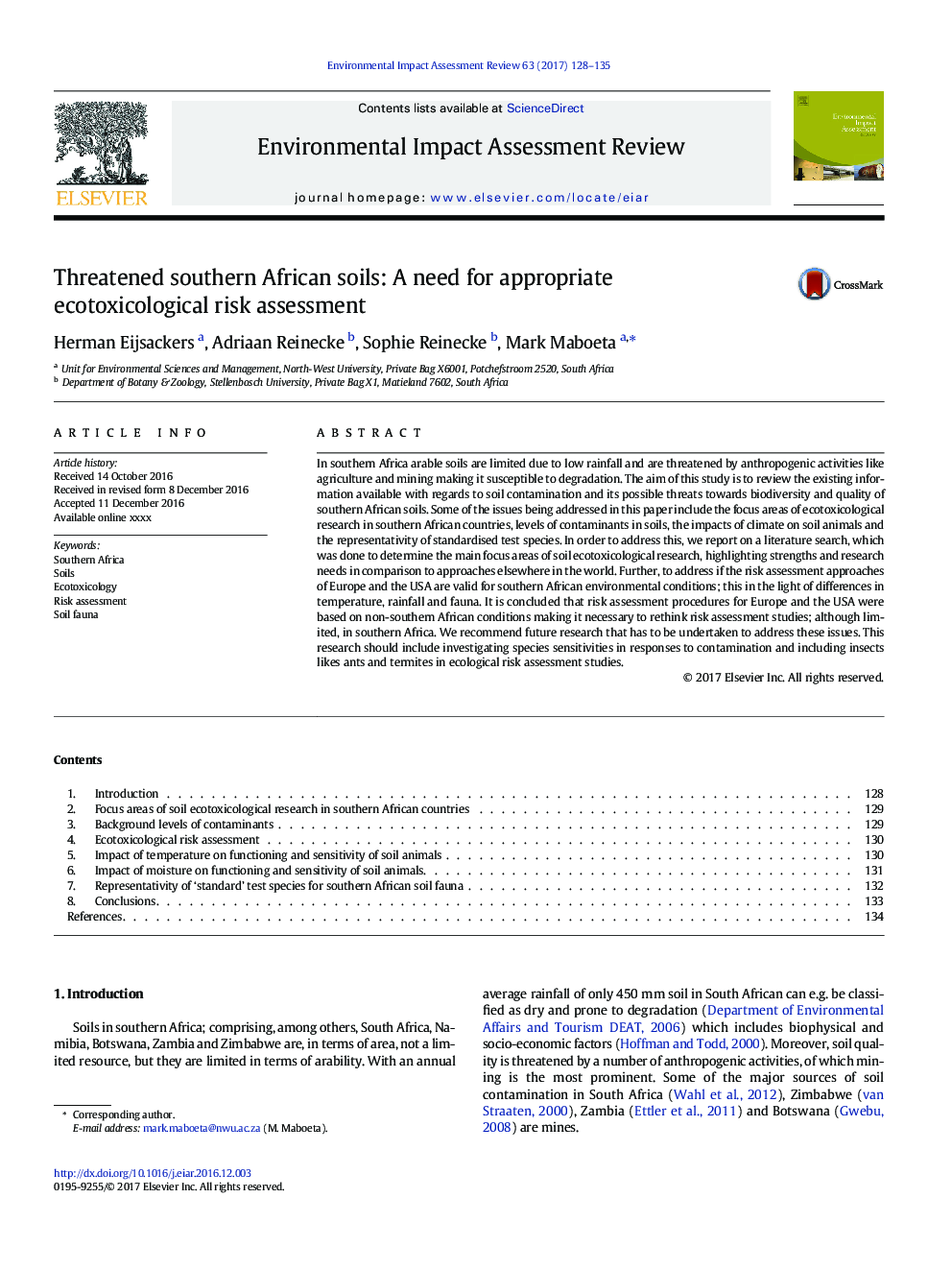| Article ID | Journal | Published Year | Pages | File Type |
|---|---|---|---|---|
| 5115669 | Environmental Impact Assessment Review | 2017 | 8 Pages |
Abstract
In southern Africa arable soils are limited due to low rainfall and are threatened by anthropogenic activities like agriculture and mining making it susceptible to degradation. The aim of this study is to review the existing information available with regards to soil contamination and its possible threats towards biodiversity and quality of southern African soils. Some of the issues being addressed in this paper include the focus areas of ecotoxicological research in southern African countries, levels of contaminants in soils, the impacts of climate on soil animals and the representativity of standardised test species. In order to address this, we report on a literature search, which was done to determine the main focus areas of soil ecotoxicological research, highlighting strengths and research needs in comparison to approaches elsewhere in the world. Further, to address if the risk assessment approaches of Europe and the USA are valid for southern African environmental conditions; this in the light of differences in temperature, rainfall and fauna. It is concluded that risk assessment procedures for Europe and the USA were based on non-southern African conditions making it necessary to rethink risk assessment studies; although limited, in southern Africa. We recommend future research that has to be undertaken to address these issues. This research should include investigating species sensitivities in responses to contamination and including insects likes ants and termites in ecological risk assessment studies.
Related Topics
Physical Sciences and Engineering
Energy
Renewable Energy, Sustainability and the Environment
Authors
Herman Eijsackers, Adriaan Reinecke, Sophie Reinecke, Mark Maboeta,
